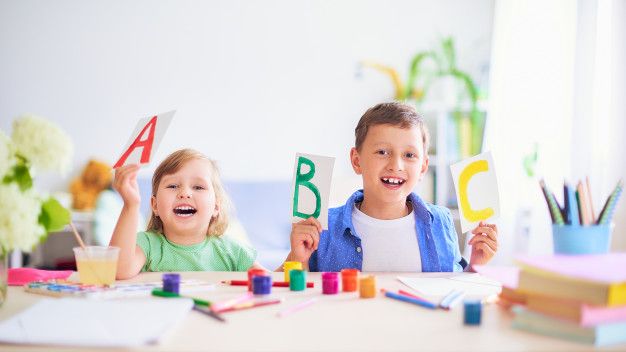
As it is described in multiple researches and more specifically in the study conducted by British Council, young children are natural language acquirers; they are self-motivated to pick up language without conscious learning, unlike adolescents and adults (Dunn, 2021). They have the ability to imitate pronunciation and work out the rules for themselves. They have no concept that learning to speak English is difficult until it is advised by adults, who most likely learnt English academically through grammar-based text books at a later age.
Teaching second language to pre-school or kindergarten children can be a great struggle for teachers who have never been working with this age group in the past. Children’s attention spans are much shorter than those of older children and adults, and in the same time they are still learning their native lanuage. However, if the teacher masters a few basic principles, teaching these students may be quite rewarding.
According to British Council, “…second language learning is a valuable tool that we should arm children with”. As such, “it should be continually improved so they can better communicate with others as they progress from playtime activities to more diverse learning concepts and situations” (British Council, 2021). As educators of these young minds, adults have the responsibility to nourish and nurture them in every way possible, including learning through a variety of fun and entertaining methods.
Thus, it is crusial for educators of young children have access to appropriate play based educational material and tools. Unfortunately, pre-schoolers and kindergarten are taught English language in most EU countries in the same way as (young children of primary, secondary school or adults), with little opportunity for creativity, actual language use, and with little enjoyment for most (Nuktong 2010). Moreover, according to Aranai, Reinders &Wasanasomsithi “many children become bored and demotivated and start to view second language as an object of study only. One possible remedy, certainly with younger learners, is to create excitement and enjoyment through the use of play” (Aranai, Reinders and Wasanasomsithi, 2015). Children are more motivated to explore academic standards within their play because it is meaningful to them. Play-based learning has been used for decades in early childhood teaching around the world and there is a large body of literature to show its benefits (Dau 1999; Landreth 2002).
Eurospeak implements a really interesting project related with second language learning in kindergarten through play-based learning, the Language Learning through play in kindergarten – Play & Learn (2021 – LV – KA220-SCH-A06F1906).
Through this project our main is to establish the use of play and games in class & on learners’ development in early language learning and to promote the professional development of educational staff (knowledge and skills) within bilingual education from an early age.
If you are interested in the project development stay tuned for more! And follow us on Facebook


 Previous Post
Previous Post Next Post
Next Post